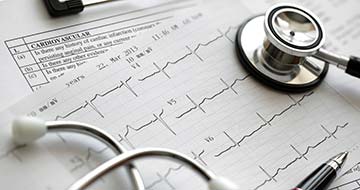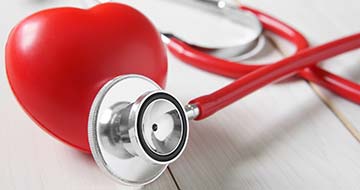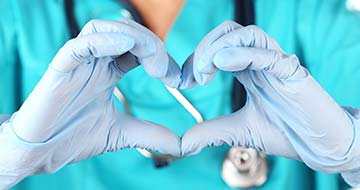Services
The first step in your care process is to understand the nature of your disease so that we can diagnose your condition.
Cardiac Electrophysiology, is the study of the electrical activities of the heart, specifically for the purposes of diag...
When our patients present with problems that may be cardiovascular in nature, we help determine the most likely diagnosi...
We help our patients improve blood flow in their arteries and veins by using very small tubes and specialized tools to d...
When the heart is functioning normally, the arteries are clear and open to allow for easy passage of blood through and o...
The highly trained surgeons and specialists at Biltmore diagnose and treat structural heart disease. We understand the n...
Valve Disease: Six Questions to Ask Your Doctor
With valve disease, the aortic valve is narrowed, requiring the heart to work harder to pump blood through the body. (This is also called aortic stenosis.) If your doctor suspects or confirms that you have valve disease, here are a few questions you may want to ask:
- If my valve problem isn’t serious, what do we need to do to monitor it over time?
Although many people have a heart valve defect or disease that doesn’t progress, valve disease can sometimes worsen. If the disease isn’t closely watched, you may develop life-threatening conditions, like heart failure. Your doctor can tell you what you can expect and what tests you may need, whether or not you are experiencing symptoms.
- How will I know that my valve disease is getting worse?
Symptoms may crop up years after a doctor first diagnoses a valve problem. You may feel unusually tired, be short of breath or notice swelling in your ankles, feet, abdomen or neck veins. You may also experience sensations such as dizziness, fainting or a racing or irregular heartbeat when you exert yourself.
- Why does my valve need to be replaced? Can it be repaired instead?
In some cases, valve function can be improved by separating the valve’s leaflets, the flaps that help it open and close, or removing tissues that are obstructing the valve. It involves less risk of infection and less need for blood-thinning medications. Your doctor should be able to explain why you are or are not a candidate.
- Can I have TAVR instead of open-heart surgery?
In general, it depends on how sick you are. If you are unable to undergo open-heart surgery because it would be too dangerous, you may be a good candidate. Your doctors should discuss the options and tell you whether or not you are eligible for transcatheter aortic valve replacement.
- If I need to have my valve replaced, should I get a get a mechanical valve or a biologic tissue valve?
The choice depends on several variables that your doctor will explain, including your age. Mechanical valves are the most durable types of replacement valves and should last for the rest of your life. But if you receive one, you will need to take blood-thinning medications for the remainder of your life to prevent dangerous clots from forming. On the other hand, tissue valves last from 10 to 20 years and usually don’t require the long-term use of medication. You may need to have replacement surgery again in the future, however.
- What symptoms should prompt me to call the doctor?
It’s important to contact your doctor’s office if you have persistent shortness of breath, dizziness or palpitations. And if you are experiencing chest pain, call 9-1-1.







